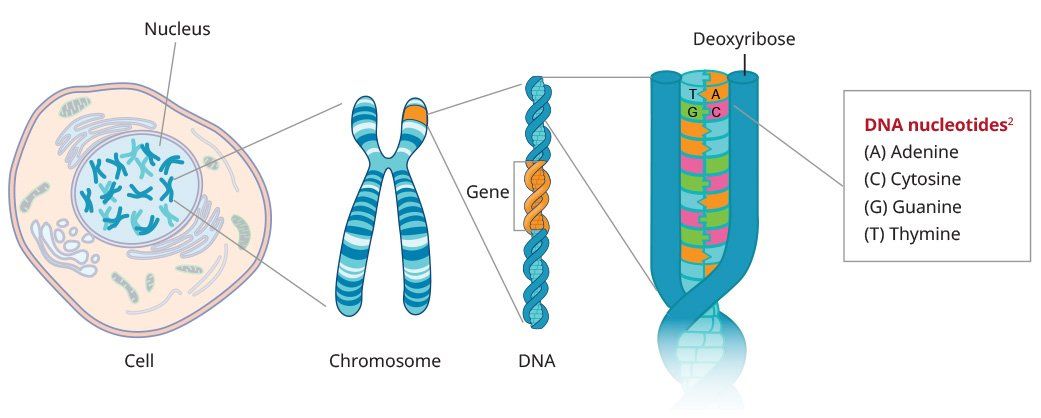Basic principles of genetics
What is genetics?
What is genetics?
Genetics is the study of genes and how traits or conditions are passed from one generation to another.1
What is a gene?
A gene is a sequence of nucleotides in
deoxyribonucleic acid (DNA)
that provides the
cell
with instructions to make proteins, which carry out specific functions in the body. Each person has two copies of each gene, one from each chromosome inherited from their parents. All DNA in a cell is packaged into small bundles called chromosomes, which are found in the
nucleus
(the core) of each cell. There are 23 matching pairs of chromosomes in each cell.2
The Human Genome Project estimated that humans have about 30,000 genes, which are organized as chromosomes.3



